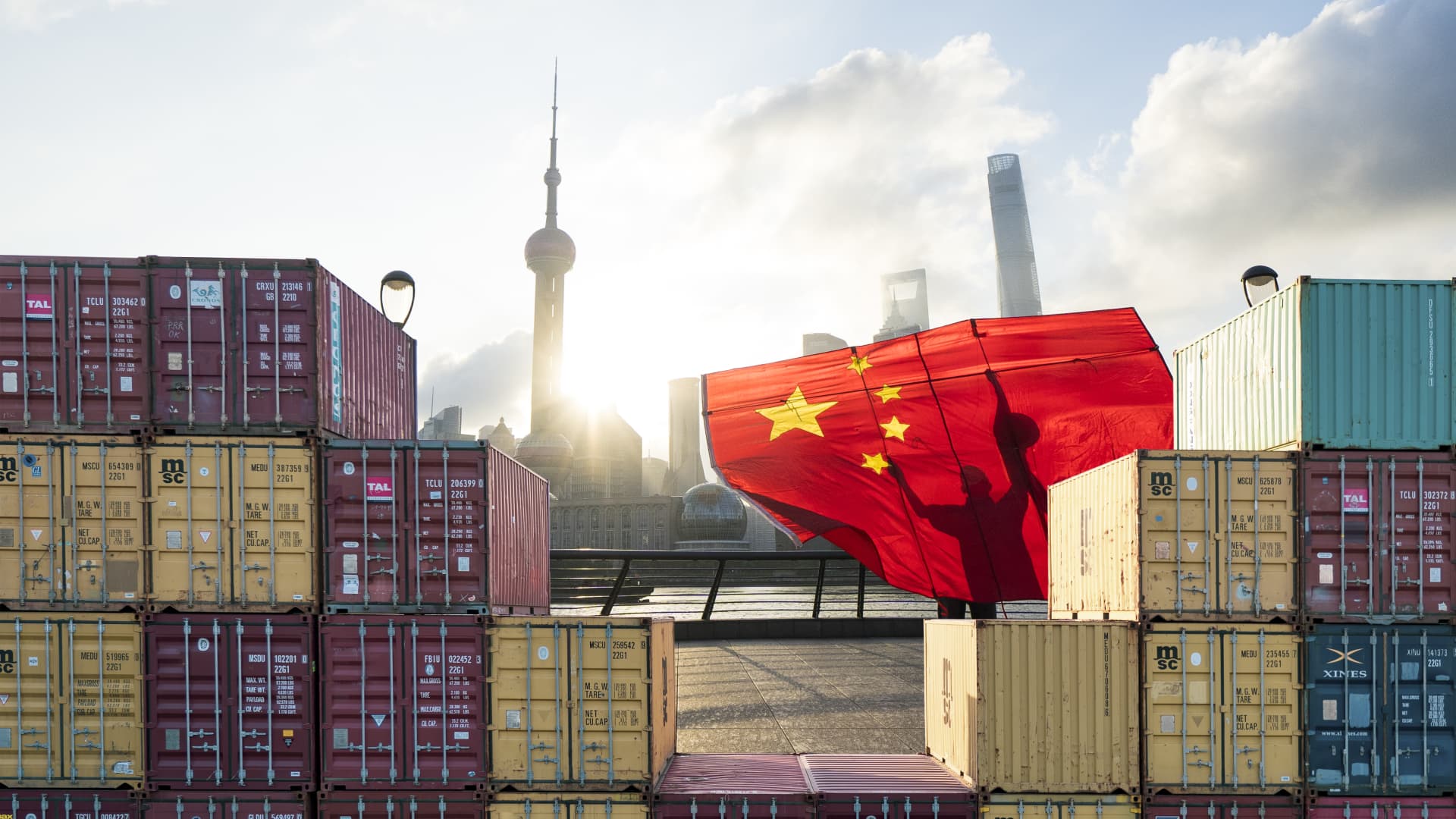View of Shanghai skyline from a container station.
Yaorusheng | Moment | Getty Images
China is still a critical trading partner for many countries across the world, and the often-used narrative of the superpower being delinked from the global economy is overdone, says the Manila-headquartered Asian Development Bank.Â
“China’s still probably the number one trading partner for the majority of countries in the world,” ADB’s Chief Economist Albert Park told CNBC.Â
Although there have been parts of overall trade with China that have declined, the country’s engagement and importance in the global value chain has not diminished, said Park.
China’s trade with its major partners fell in 2023 â its annual exports dipped for the first time in seven years as demand for Chinese goods fell amid slower global growth. However, the economic powerhouse remains a top trading partner to over 120 countries, and is still the largest trading partner to Japan, South Korea, Taiwan and Vietnam, according to U.S. think tank Wilson Center.
While it may ring true for certain goods or specific countries that are “very aggressively trying to restrict Chinese trade,” on a more global scale the delinking is much less evident, said the economist. He added that even following the trade conflict started by former U.S. President Donald Trump in 2018, China’s importance in the global value chain has not slumped.Â
The story of China being delinked from the global economy â I think those are probably generally very overdone or very partial.
Albert Park
ADB Chief Economist
Trade tensions between China and the U.S. have been festering since 2018 with Trump slapping tariffs and other trade barriers on China. Even so, China continued to play an outsized role in the global economy, accounting for 18% of global GDP and is regarded still as the world’s largest trading economy.Â
“The story of China being delinked from the global economy â I think those are probably generally very overdone or very partial,” Park continued.
On China’s end, a pursuit of self-reliance has decreased its dependency on imports, but China continues to maintain its reliance on foreign demand, scaling up on exports which have become intertwined with the country‘s growth.Â
“All told, a delinking of global production processes and consumption from China is not in sight,” the U.S. Federal Reserve said in a recent February statement.
The U.S. and EU have been considering imposing sanctions on Chinese companies it believes are helping Russia fuel its war in Ukraine, a move which could hurt the Chinese economy even further as it tries to move out of the post-Covid doldrums. Doubts about investing in China have gained ground as the economy continues to battle pressures from deflation, an economic slowdown, and an embattled property market.
What does this mean for Asia?
As China’s global trade links remain extensive, its stymied growth recovery story continues to pose a risk to Asia’s trade environment, Park noted.
“China remains an important demand side risk, because there’s still a lot of questions about the resilience of Chinese growth,” Park said. “We often had a rule of thumb that 1% slower growth in China reduced export demand by something like 0.3%,” he said.
A view of the automated container port in Qingdao in east China’s Shandong province.Â
Zhang Jingang | Future Publishing | Getty Images
Other factors also present a headwind to Asia’s trade ecosystem. Moderating global economic growth is expected to weigh on external demand for exports out of Asia, Park surmised.Â
That said, he expects the semiconductor cycle to rebound, which may offer some hope for high tech exporters in Asia such as South Korea, Taiwan and Japan. Improved demand from the U.S. and EU, and strong growth in India are also likely to benefit Asia’s trade prospects, the ADB said in its 2024 Asian Economic Integration Report released Monday.
Asian trade last year came in “stagnant” and below 2022 levels as a result of global monetary policy, geopolitical tensions and a downturn in the semiconductor cycle, the ADB said.Â

